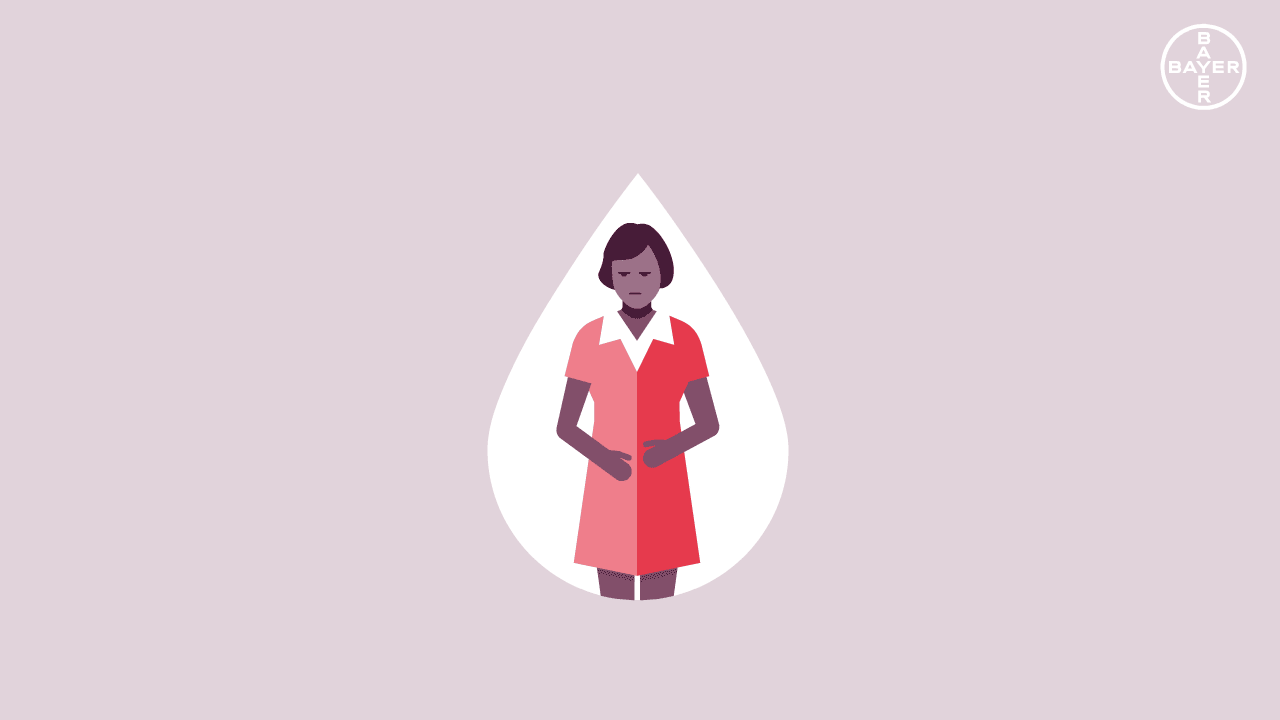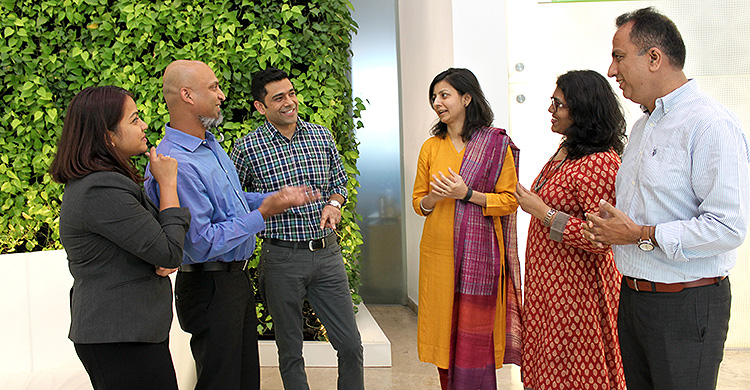Menstrual Cups Are Helping Schoolgirls In Africa

Every month, millions of girls around the world struggle to attend school when they have their period because they can’t afford sanitary protection, such as towels or tampons. Bayer employees are helping girls in Kenya by distributing menstrual cups and thus giving them the chance of a better education – and a better life.
It was shocking news of this kind that inspired Aino Försti-Smith, a Bayer employee in Finland, to help girls living in Kenya. She has a newspaper clipping in front of her, dated September 2019. The report from the Daily Nation reveals that a Kenyan schoolgirl committed suicide after she got her first period and the blood smeared her clothes. The teacher scorned the 14-year-old so severely that she hanged herself in despair from a noose in a tree.
“This sad story exemplifies harsh reality,” Försti-Smith says. She is referring to the fact that menstruation causes a major problem for women in many places around the world. The WHO estimates that five hundred million women have no access to sanitary products to capture their monthly flow.
This plight affects hundreds of thousands of women in Kenya, where nearly half of the population lives in poverty. There’s frequently not enough money for sanitary towels, as one pack costs almost as much as the daily wage. Many girls and women have to make do without – but whenever this blood appears, they need to stop the flow.
- 1/4
- 2/4
- 3/4
- 4/4




Sponges, rags or sand instead of towels
They stuff sponges, rags, cotton, or even sand into their pants. However, this is unhygienic and can lead to infections. Out of despair, some women pay with their bodies – exchanging sex for sanitary products. In Africa, they call this transactional sex, through which the girls can already fall pregnant or become infected with HIV as teenagers.
On top of this comes shame and fear. The girls are scared they might soil something with their blood or embarrass themselves – so they struggle to go to school. However, staying at home during their period causes a different problem. Lack of regular attendance at lessons means they fall behind – with the consequence of lower grades and fewer chances of gaining a qualification and a well-paid job.
School hands out sanitary towels and menstrual cups
Försti-Smith and her co-workers in Kenya are not willing to simply look away. For years now, Bayer employees have been distributing sanitary towels free of charge to girls at the Baba Dogo Primary School in Kenya’s capital city Nairobi so they can keep on attending school during their period and focus on their lessons.
A few months ago, a new project was also launched at this school in the form of a gift that will remain valuable to the girls for a long time. Bayer employees from the Nairobi office together with an organization called “The Cup” run information sessions at the school and handed out menstrual cups to the girls.

The Cups And The Project
The menstrual cups supplied by The Cup Organisation are a lasting and hygienic way to cope with menstruation. They can be used repeatedly for ten years.
The team from The Cup also teaches the girls about menstrual health and other topics that young people need to be informed about to grow up healthily. The lessons cover sex education, sexual protection and human rights, among other things.
The organization adopts a holistic approach, including the girls’ wider local communities. This meant the boys, teachers and parents at the school were also addressed.
Försti-Smith and her Kenyan co-worker Helen Mwathi are the driving forces behind the project. The Bayer Foundation provides funding.

And what do the girls think of it all? “They are happy this basic need is being met,” Försti-Smith relates. “They no longer have to think about where to get sanitary products, enabling them to focus on learning.”
The project improves the girls’ chances of an education this way. “I am certain this plays a major role in improving their lives and their future,” says Helen Mwathi. Education is also the first step toward attaining equal rights for them in this world. “It will help bring about positive changes in families and communities.”
These changes are important – also in abolishing the need for media reports about girls who commit suicide because of their period.
Social Commitment – Support For The Dedicated
An Indian employee who set up a library in a village school in his hometown, the pensioner who now runs a grocery store in a small German town, the Finnish colleague from Marketing who, with the aid of her sales team in Kenya, provides young girls with access to hygiene articles and health education, and the employee who takes a refrigerated van into the center of Cologne in the evening to distribute food to homeless people:
There are many ways of tackling social challenges on a voluntary basis. The Bayer Cares Foundation supports employees who volunteer all over the world. The foundation designates innovative volunteering projects “Role Models”, awarding them one-off funding of up to EUR 5,000. Since the start of the volunteering program in 2007, the Bayer Cares Foundation has contributed to the success of 632 projects in more than 60 countries in this way – thus helping many people to benefit from better healthcare, education or nutrition.





















